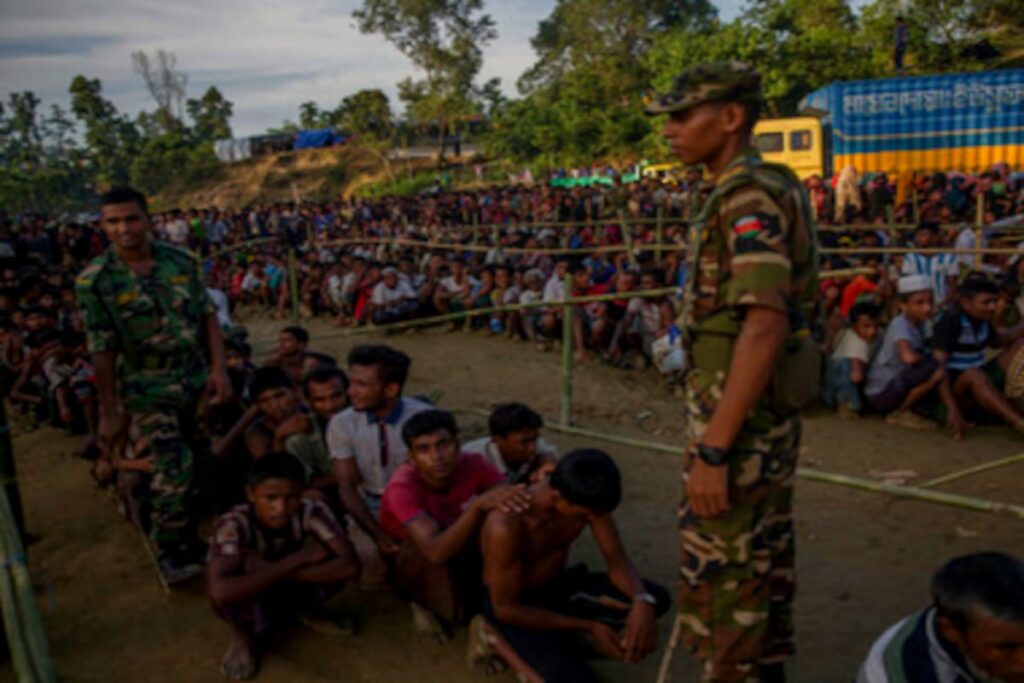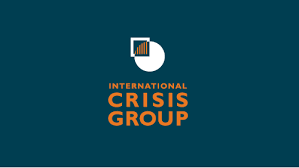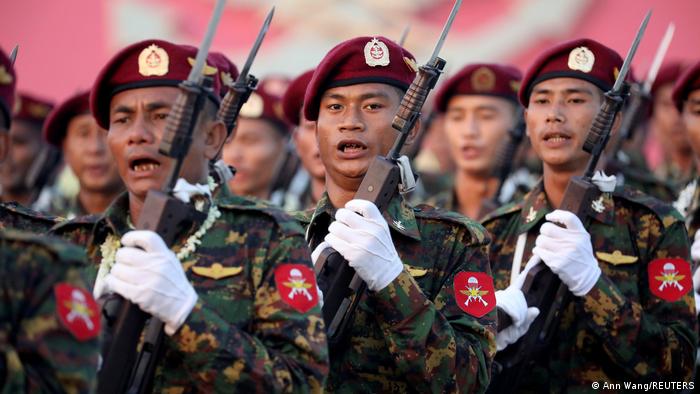The Deadly Stalemate in Post-coup Myanmar
ASIA--PACIFIC, 25 Oct 2021
International Crisis Group - TRANSCEND Media Service
20 Oct 2021 – World attention to Myanmar is waning, despite the deepening impasse between the junta and resistance forces. Major powers should back the Association of Southeast Asian Nations in reinvigorated efforts to relieve the suffering of people facing poverty and disease as well as regime repression.
What’s new? A dangerous stalemate has developed between Myanmar’s military regime and resistance forces. Both sides are determined to prevail, but neither seems likely to deliver a knockout blow imminently. With deadly attacks on regime targets and brutal regime retaliation continuing, violence and insecurity will persist across the country.
Why does it matter? The crisis is playing out against a backdrop of deepening economic recession, health system collapse, and surging poverty and food insecurity. In addition to violence and regime oppression, people across Myanmar face a dire humanitarian predicament and long-term development challenges, with serious implications for South East Asia and beyond.
What should be done? Myanmar’s crisis should be a higher priority for Western and Asian governments, which should throw greater weight behind the so-far dysfunctional process led by the Association of Southeast Asian Nations. External actors urgently need to address the humanitarian emergency without reinforcing regime structures – a political challenge requiring creative diplomacy.
I. Overview
Since the 1 February coup d’état, Myanmar’s military regime has brutally repressed the population as it tries to quash dissent and consolidate its grip on the country. A broad-based resistance movement is using non-violent and violent means to prevent the junta from succeeding. With no sign that the deadlock will end soon, vulnerable populations face a dire future. In addition to the insecurity, Myanmar’s economy is in freefall, the national currency is crashing, health and education systems have collapsed, poverty rates are estimated to have doubled since 2019, and half of all households cannot afford enough food. Despite the severe situation and the considerable risks associated with having a failed state at the heart of the Indo-Pacific, international attention is waning. Myanmar needs to be a higher foreign policy priority for Western and regional governments, with greater weight thrown behind efforts by the regional bloc, the Association of Southeast Asian Nations (ASEAN). An urgent focus should be finding ways to deliver crucial aid – including COVID-19 vaccines – in a way that does not reinforce regime structures.
To date, most foreign governments, as well as the UN Security Council, have been content to leave the international diplomatic response to ASEAN. The ASEAN process, aimed at resolving the political crisis in Myanmar and providing urgent humanitarian assistance, gained initial momentum at a special summit the organisation convened in Jakarta in April 2021, which coup leader Senior General Min Aung Hlaing attended. The region’s leaders agreed on a five-point consensus, including an immediate cessation of violence, the delivery of humanitarian aid and the appointment of an ASEAN envoy to facilitate dialogue among all parties concerned. Since then, the process has atrophied, with the bloc taking more than three months to appoint an envoy, who has not been able to visit Myanmar. As a result of the regime’s lack of cooperation, ASEAN leaders decided to exclude Min Aung Hlaing from their 26 October summit.
Meanwhile, the military regime, or State Administration Council, has continued to target its foes as well as their supporters and sympathisers. Its forces routinely carry out summary executions and torture of detainees – including children – and have used heavy weapons heedlessly in attacking cities. UN investigators have stated that these tactics likely constitute crimes against humanity.
In response, the parallel National Unity Government (NUG) in September declared a “people’s defensive war”, calling on civilians across the country to rise up against the regime. While the NUG has no military capability of its own, and its declaration has not led to the hoped-for escalation, resistance forces continue to stage attacks on a daily basis, ambushing military convoys, bombing regime-linked targets and assassinating regime-appointed local officials, suspected informants and others seen as loyal to the ruling junta. The NUG’s efforts to secure diplomatic recognition – including its goal of occupying Myanmar’s seat at the UN – will be complicated by the fact that it has now put its imprimatur on a struggle that includes killing of civilians and use of indiscriminate weapons.
International actors should redouble efforts to address the crisis’s humanitarian and economic fallout.
Outside powers have little room for manoeuvre, with both sides determined to prevail, and therefore showing no interest in any negotiated settlement. Still, international actors should redouble efforts to address the crisis’s humanitarian and economic fallout. ASEAN, while continuing to pursue its five-point plan, should focus in particular on using its access to the generals to help negotiate expanded aid delivery. Other countries should back up their expressions of support for ASEAN with more active reinforcement of the bloc’s efforts. They could, for instance, provide advice and expertise to bolster ASEAN’s diplomatic and humanitarian engagement and help iron out divisions among its member states.
Any international strategy for supporting Myanmar’s population will have to grapple with how to deliver aid at scale without reinforcing regime structures and how best to support civil society organisations without overwhelming their capacity or exposing them to security risks. These tasks will require political discussions with the junta, the NUG and other legitimate representatives as well as de facto local authorities such as ethnic armed groups to secure access, preserve operational space to deliver via non-regime channels and ensure that assistance has the buy-in of beneficiaries. The UN and its new special envoy are probably best placed to take the lead, in close consultation with donors and ASEAN. The rollout of COVID-19 vaccinations will be a key test in determining what is possible.
While it will be hard to de-escalate the conflict or protect civilians at present, international accountability mechanisms have an important role as a deterrent and to keep hope alive that those responsible for atrocities – primarily the military, but also other armed elements – can be brought to justice. Those outside actors engaging with the NUG and other resistance actors should also press them to take action on alleged violations by forces they claim to represent, and provide training and advice to help them do so.
II. A Deadly Stalemate
TO CONTINUE READING Go to Original – crisisgroup.org
Tags: Authoritarianism, Burma/Myanmar, Civil War, Direct violence, Military, United Nations, Violent conflict
DISCLAIMER: The statements, views and opinions expressed in pieces republished here are solely those of the authors and do not necessarily represent those of TMS. In accordance with title 17 U.S.C. section 107, this material is distributed without profit to those who have expressed a prior interest in receiving the included information for research and educational purposes. TMS has no affiliation whatsoever with the originator of this article nor is TMS endorsed or sponsored by the originator. “GO TO ORIGINAL” links are provided as a convenience to our readers and allow for verification of authenticity. However, as originating pages are often updated by their originating host sites, the versions posted may not match the versions our readers view when clicking the “GO TO ORIGINAL” links. This site contains copyrighted material the use of which has not always been specifically authorized by the copyright owner. We are making such material available in our efforts to advance understanding of environmental, political, human rights, economic, democracy, scientific, and social justice issues, etc. We believe this constitutes a ‘fair use’ of any such copyrighted material as provided for in section 107 of the US Copyright Law. In accordance with Title 17 U.S.C. Section 107, the material on this site is distributed without profit to those who have expressed a prior interest in receiving the included information for research and educational purposes. For more information go to: http://www.law.cornell.edu/uscode/17/107.shtml. If you wish to use copyrighted material from this site for purposes of your own that go beyond ‘fair use’, you must obtain permission from the copyright owner.


